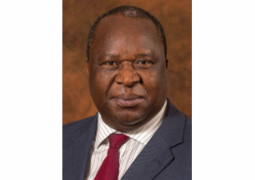
For health services, Mr Tito Mboweni said the supplementary budget proposes R21.5 billion for Covid-19-related healthcare spending. He said it also proposes a further allocation of R12.6 billion for the frontline services. The allocations, according to Mr Mboweni, have been informed by epidemiological modelling, a national health sector Covid-19 cost model, and their experiences over the past 100 days.
He said that money is going to partly support increased screening and testing, allowing the government to open up more and more of the economy. “We have successfully increased our Covid-19 bed capacity to above 27 000; identified 400 quarantine sites with a capacity of around 36 000 beds across the country, and deployed nearly 50 000 community healthcare workers to screen millions of South Africans,” he said.
He said the provinces will add at least R5 billion for the education catch‐up plan, social welfare support for communities and provision of quarantine sites by Public Works departments and responses in other sectors. He said: “We salute all the brave healthcare and essential service workers who are leading this fight.”
He said tariffs have been agreed with private hospitals to supplement public sector capacity. “The Solidarity Fund has augmented government’s efforts to procure medical and personal protective equipment. We thank all those who have made much-needed contributions to the fund,” he said.
On the protection of the most vulnerable, he said over 18 million South Africans have received a temporary Covid-19 grant. He said the roll out of the short‐term Special Relief of Distress grant will temporarily support those without an income. He said: “An additional 1.5 million people have received this grant already. To support vulnerable households, an additional allocation of R25.5 billion to the Social Development Department is proposed, for a total relief package of R41 billion.”
However, he said all these measures will come to an end in October this year. “We have implemented health and hygiene measures in 7 000 early childhood development centres, and appointed about additional 1 800 social workers,” he added.
On job creation, Mr Mboweni said unemployment is South Africa’s single greatest challenge. He said the Economic Support Package sets aside R100 billion for a multi‐year, comprehensive response to jobs emergency. “The President’s job creation and protection initiative will be rolled out over the medium‐term. It will include a repurposed public employment programme and a Presidential Youth Employment Intervention,” he said.
He said in this year, an amount of R6.1 billion is already allocated, and a further R19.6 billion has been set aside mainly for employment creation interventions.
He said as of mid‐June, the Unemployment Insurance Fund (UIF) has provided R23 billion for Covid-19 relief to more than 4.7 million workers affected by the pandemic, and that according to him, that has required a huge upgrade and repurposing of the UIF system to deal with the increase in mostly online applications, and to build protections against fraud.
“We thank all involved for the upgrade. There were many individuals from the private and NGOs (non-governmental organisations) sector who volunteered their time to assist the UIF. There are still challenges but we are confident that the team is working tirelessly to iron them out,” he emphasised.
By Mava Lukani
24 June 2020

